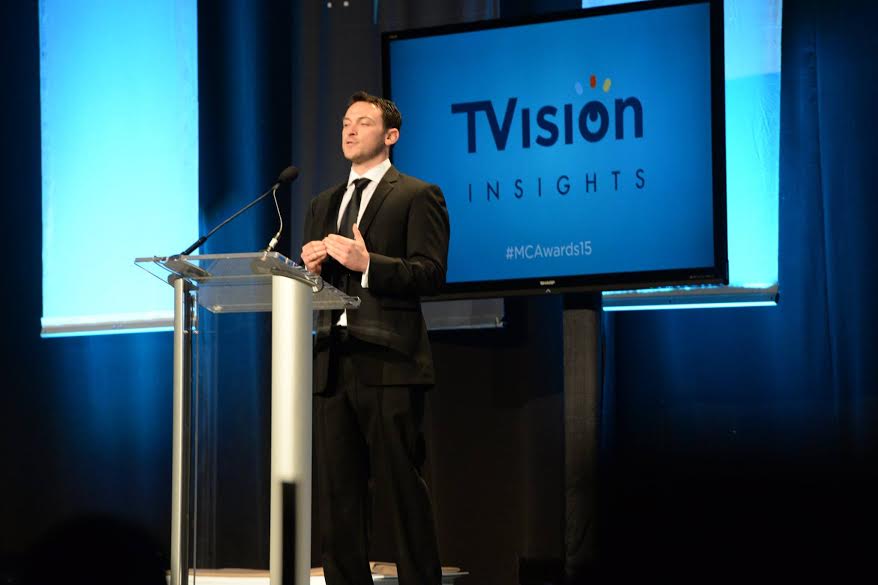TVision Aims to Change the Future of TV Advertising

Dan Schiffman/Image Provided
Roughly $75 billion is annually spent on television advertising—a 30-second Super Bowl spot sells for $5 million alone. But do advertisers, agencies, and television networks really know what they’re paying for?
MIT-spun startup TVision announced Wednesday it raised $2.5 million to guarantee they do.
TVision is offering an alternative to the standard Nielsen ratings by creating a secure, anonymous Apple TV-like device that tracks how viewers watch programming. Using proprietary facial recognition technology, the startup can gauge consumers’ attentiveness and emotional reaction to ads, second by second.
“There’s a whole funnel of activity that goes into Web data,” says TVision cofounder Dan Schiffman, referring to metrics like pageviews and clicks. “But TV—the largest medium for reach—still doesn’t have any of that engagement or tracking data.”
It’s a trend fellow cofounder Yan Liu observed after starting a digital marketing agency in Shanghai, China. Online advertisers were marketing their products more effectively because they could tap into data, see how consumers were engaging with their content, and then serve ads appropriately.
TVision has set out to provide networks, media agencies, and TV advertisers with the same advantage. The team’s technology can detect if a viewer’s TV is on or off, and whether he or she is distracted or engaged with what’s playing. If the person is fiddling with their phone instead of staring at the larger screen in front of them, TVision notes that.
“It sounds a little crazy,” Schiffman acknowledges. “‘Is someone watching me watch TV?’ But the only thing our system ever sees is a terminal and a matrix—really, a bunch of numbers that scroll down.”
What that means is that if there were three people sitting down watching TV, three rows of data would be generated every second that answers questions like whether that person was engaged with the content, if they were watching a TV show or an ad, and what channel they were tuned in to.
“It’s a brave new world, and we have to be delicate about how we treat privacy information,” Schiffman says. “Your Fitbit and iPhone have a lot of information they use and sell. But we are very upfront about how concerned and protective we are of privacy.”
Advertisers and media agencies are able to use the data to analyze the effectiveness of their content, better understand audience behavior, and make more informed decisions around their media spend. Networks can then leverage the data to determine when their audience is most engaged and attentive to ensure better results for their programs and advertisers.
TVision is in roughly 600 homes around Boston, and the $2.5 million in seed funding—which the team raised from Project 11 Ventures, Golden Venture Partners, Sigma Prime Ventures, and a group of angel investors—will go toward growing their technology and sales teams beyond their current seven employees.
Schiffman and Liu, who met while studying at the MIT Sloan School of Management, recently won $50,000 from startup accelerator MassChallenge, and have started opening up offices outside of their Boston headquarters in New York City, Dallas, and Tokyo.
“Television and the way we consume video content is shifting,” Schiffman says. “And the way we measure that is shifting. The long-term play for us is to be that source for the data that drives how brands are targeting and advertising.”
More simply? “We want to change the future of television advertising.”


